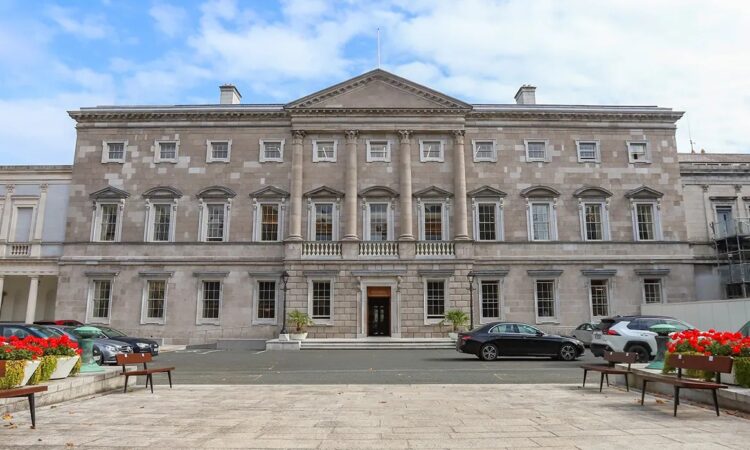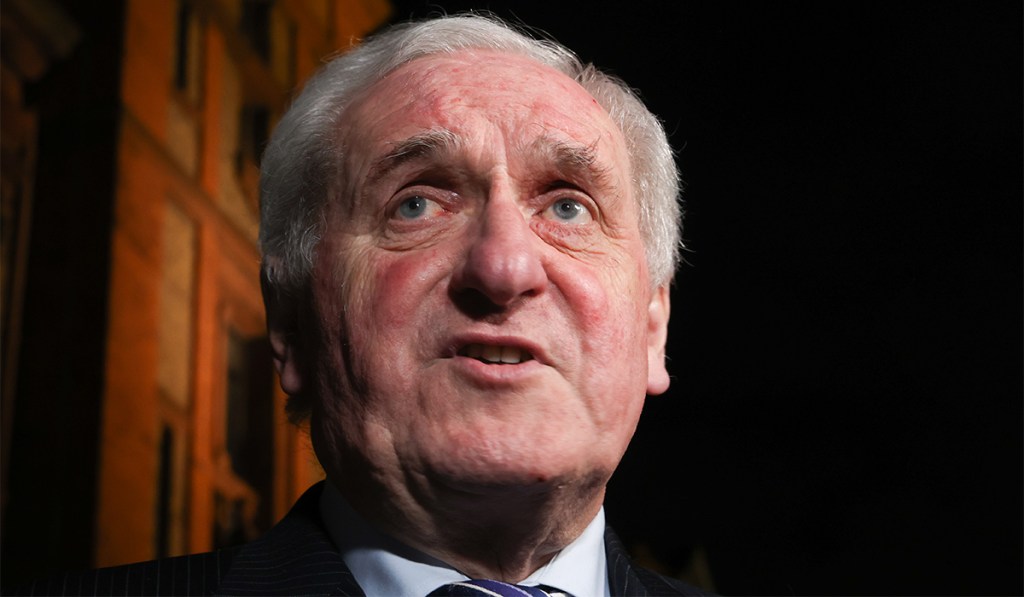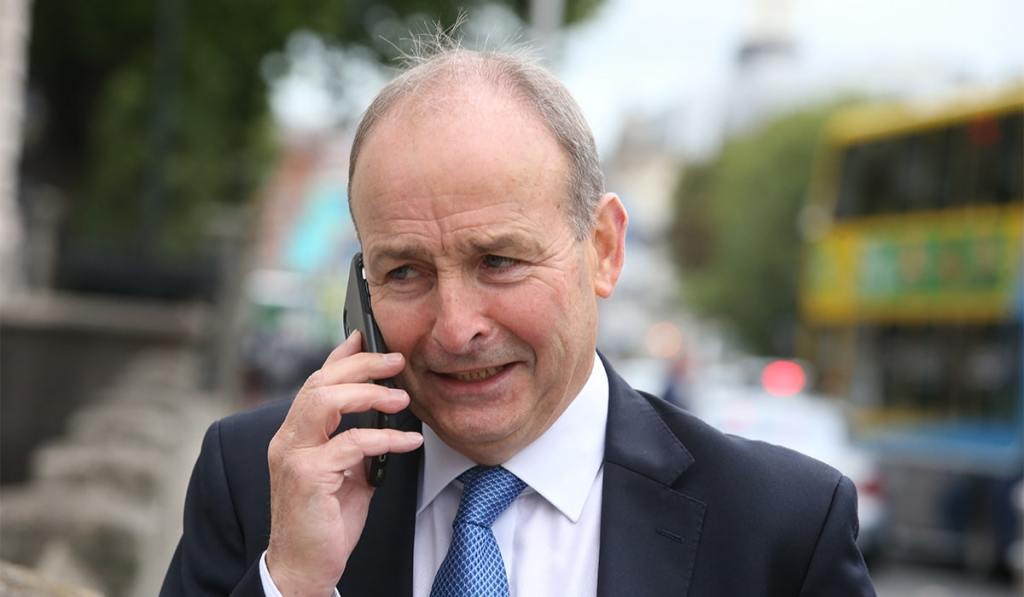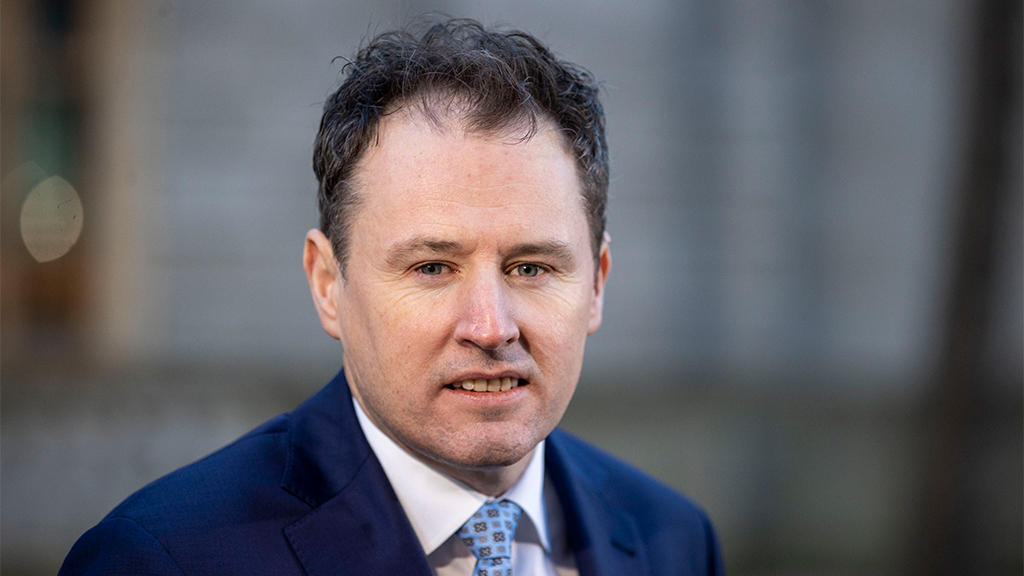
John Lee writing in today’s Irish Mail on Sunday.
Before the current Grand Coalition, one of the biggest acts of cooperative politics between Fianna Fáil and Fine Gael wasn’t even an act of co-operative politics.
Charlie Haughey once gave the plum role of EU Commissionership to a Fine Gaeler – Richard Burke – in 1982. This was not a détente between the two civil war parties that had dominated the first 60 years of the Irish state. It was done to avoid depleting the numbers of his minority GUBUera Government.
In the past the choosing of an EU Commissioner wasn’t given such intense consideration as it is currently being given in political circles. It was usually Fianna Fáil handing it out. And usually who filled it was less important than the electoral and career ambitions of the then leader, whoever that may be.
El Diablo – as PJ Mara often smilingly referred to Haughey – had even plotted on winning the byelection caused by the vacation of Burke’s seat, but in typical tragicomic Haughey fashion the byelection was lost and his government fell anyway, causing one of the three general elections that were held in 18 months.
For his part, Bertie Ahern spectacularly ‘knifed’ his Finance Minister Charlie McCreevy with a gold embossed EU Commissioner dagger in 2004, again with his own electoral aims at the forefront of consideration.

Bertie wanted to spend, spend, spend in the run into the 2007 election, McCreevy was a barrier to that.
But that was then you say, and this is now! More noble considerations will inform the decision process this time. The EU Commissioner can not be chosen on any other consideration other than merit? Well the first thing to realise, is this year the EU Commissioner job, which is traditionally decided early in the year that appointment has to be filled, has to be filled by a Fianna Fáil figure.
That deal was done at the formation of the Grand Coalition with Fine Gael and the Green Party. (No blueshirts, no dogs, no Irish!) So who then from the ranks of the soldiers of destiny has been eying up the prize? Well, everyone.
First up was the then Taoiseach, Michéal Martin. He’d be the next EU Commissioner the Fianna Fail men in grey suits (and women in corporate chic) told us. It was, so went the narrative, the most dignified exit for a man who had given so much to the party and the country.

This was way back in the summer of 2022, when the Young Turks of Fianna Fáil were convinced that Martin’s long tenure as leader of the party was coming to an end.
But then, towards the end of last year things changed again. As he handed over the Taoiseach’s office to Leo Varadkar, Michéal Martin received a standing ovation from
Sinn Féin in the Dáil. Those predicting (and quietly hoping) for Martin’s domestic political demise saw possibility stretching out in front of the 63-year-old.
As 2023 unfolded and ‘Varadkar Reloaded’ appeared to misfire, many realised Martin had manoeuvred himself and his party into prime position. Depending on post-election numbers he could stay in the current Governmental arrangement, or, as the deepening affection from Sinn Féin indicated, go with them in yet another ‘historic’ coalition.
Whatever happened it would be highly likely that Martin would be Taoiseach or ‘rotating’ Taoiseach again. Varadkar might be 20 years his junior but it was he and not Martin who looked jaded and disinterested. (Last month Martin (47%) overtook Sinn Féin leader Mary Lou McDonald (46%) as the country’s most popular leader.)
As this change happened, the illusory EU crown flipped from Martin’s head to the blond bonce of Fianna Fáil Finance Minister Michael McGrath. As the gossips in the Dáil Bar told me: ‘The fella has seven kids for Christ’s sake, he’s going to need the pay rise’. At €20,000 a month (on a special low EU tax) and with a host of other mind-warping luxuries who could possibly say no.

In recent weeks it became apparent that McGrath, who was surveying his own career landscape, said no. The coalition options opening for Fianna Fáil also meant he could be Finance Minister once more, and still inherit the mythic Fianna Fáil leadership post-Martin.
And, crucially, the Fianna Fáil powerbrokers could still say if things went south in the future, that McGrath had been offered the role.
All of this should clear the way for Tánaiste Martin to give a political gift to one of his loyalists. But it is not as simple as that, As 2023 nears its end, electoral concerns will dominate all between now and early 2025.
And the selection of EU Commissioner has taken on even more potential importance because of the year it falls.
The next year will be one of elections. The local and European elections are set in stone, for June 2024, but there is intense speculation that Leo Vardadkar will call a General Election before the end of next year too.
The only difference it makes for him to delay until the legal deadline of March 2025, is that the Coalition can only run into trouble and ill-discipline in those last few winter months.
As such Agriculture Minister Charlie McConalogue now heads the private betting in Fianna Fáil to become the next Commissioner. He is ahead of others who might fancy the job, like MEPs Billy Kelleher and Barry Andrews and Senators Timmy Dooley and Mary Fitzpatrick. It is, however, accepted among those who make the decisions, that it will have to go to a cabinet minister, for the above reasons of prestige.

There is also a belief that McConalogue is disinclined to run for the Dáil next time. And if he does there is an incredibly intimidating challenge for him to retain his seat. Many in Fianna Fáil believe the Malin-based councillor Martin McDermott is a better bet in a Donegal constituency that is sure to be dominated by Sinn Féin candidates.
It would make sense for McConalogue to be announced as Commissioner next summer at European election time – the traditional time for such announcements – to allow everyone to get in line for the General Election. The point at which McConalogue steps down might not matter, since legally now you must hold a by-election within six months of the seat being vacated. It is likely that the General Election will be called within the required time.
Yet here we see the influence of electoral politics on a highly important role, in a way that we haven’t seen in a long time. McConalogue is also unusual for an outgoing cabinet minister, as they are usually favoured above others to retain their seats. The high profile and image created during the years in Cabinet usually promotes re-election.
Michéal Martin, who is virtually certain to lead Fianna Fáil into the General Election, is I am told, totally disinclined to allow his Minister for Finance Michael McGrath, one of the select few to be sure of being re-elected to his Dáil seat, go off to Europe. Other Fianna Fáil Cabinet members – there are only six senior ministers remember – include Norma Foley, who is indispensable on a ticket in Kerry, where Fianna Fáil face the Healy Rae phenomenon, and, like elsewhere, the Sinn Féin advance.
Health Minister Stephen Donnelly has benefitted hugely from a Wicklow constituency that received kindness in the constituency redraw that was evident for most Cabinet Ministers. Darragh O’Brien, whose Housing and Environment Department oversaw the constituency redraw, incredibly, got a beneficial redraw too. Jack Chambers, a Minister for State, who sits at Cabinet is another deemed vital to General Election hopes. None of these can be considered for electoral reasons.
McConalogue, who took the unusual step of confirming his interest in the role on radio recently, may therefore be the perfect foil. He’s senior enough and crucially a Martin loyalist – who can be expected to toe the line, whatever coalition happens post-general election.
As such it fulfills the key criteria for such an appointment. It is most useful to the person who is making it. El Diablo would be proud.






